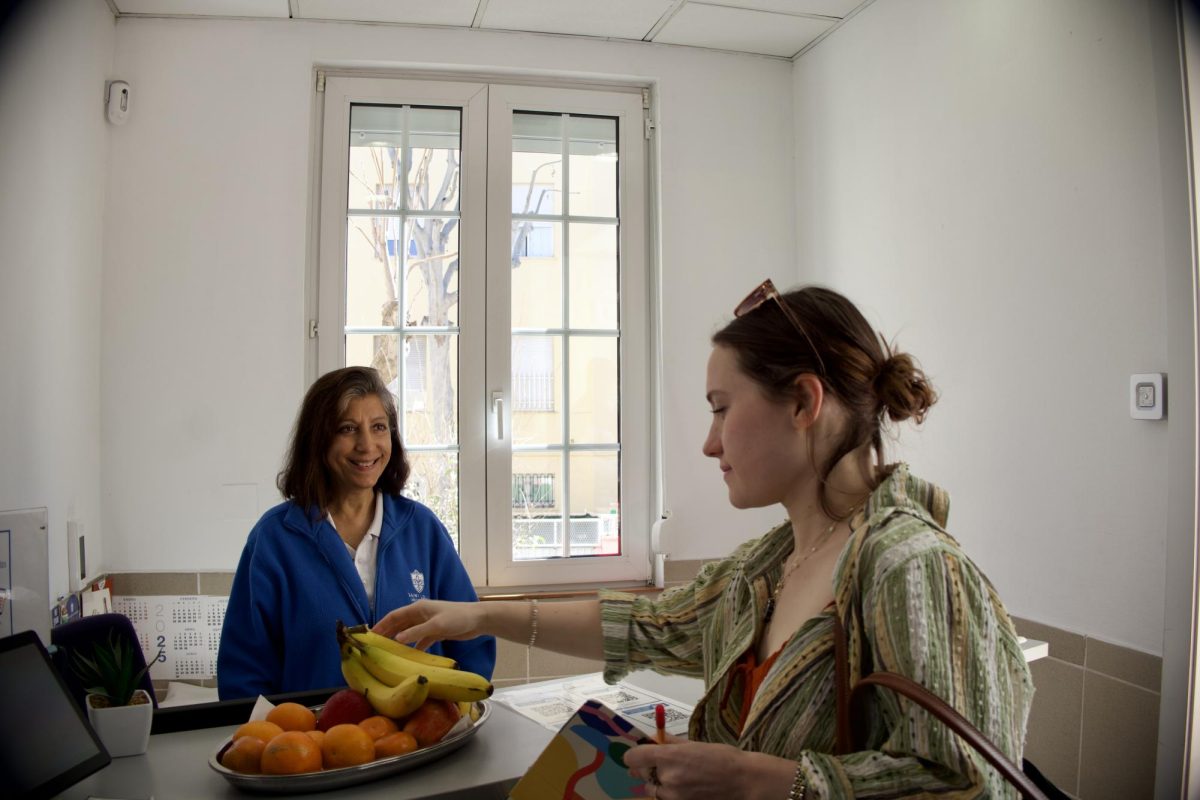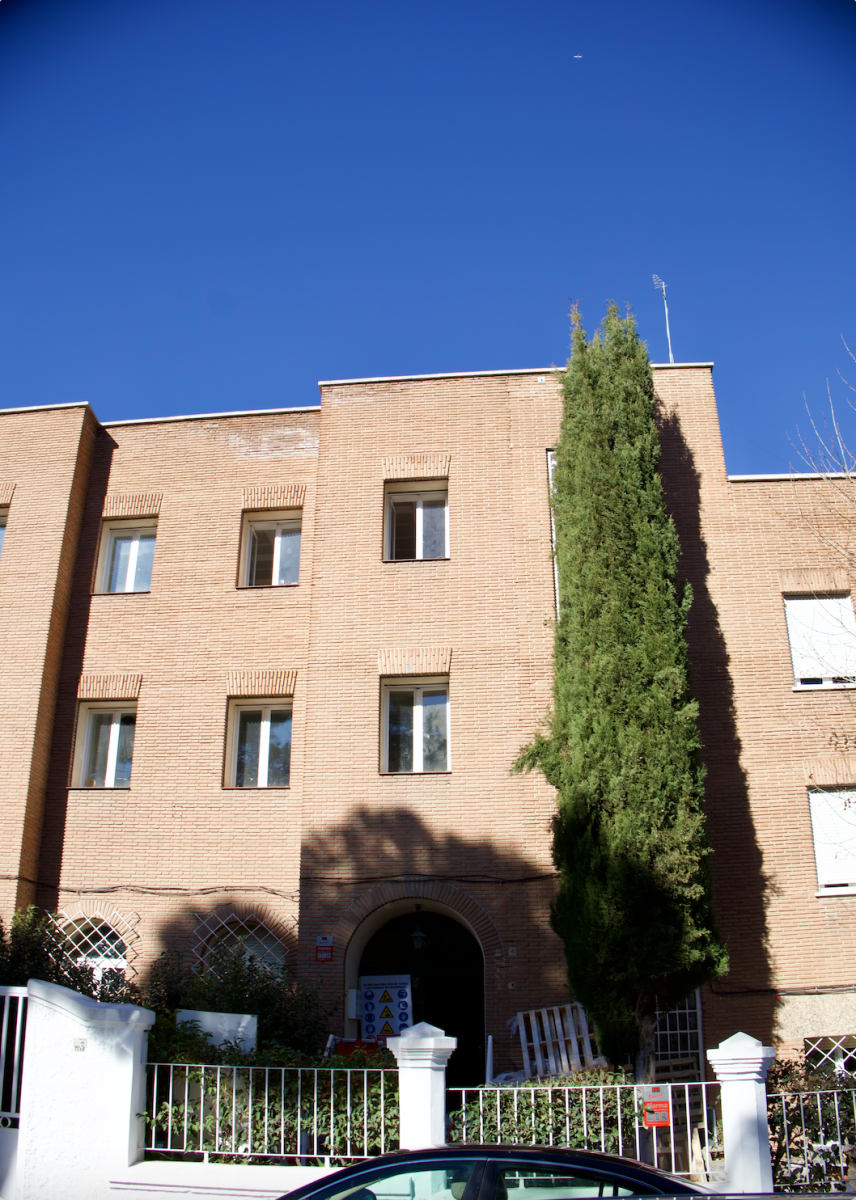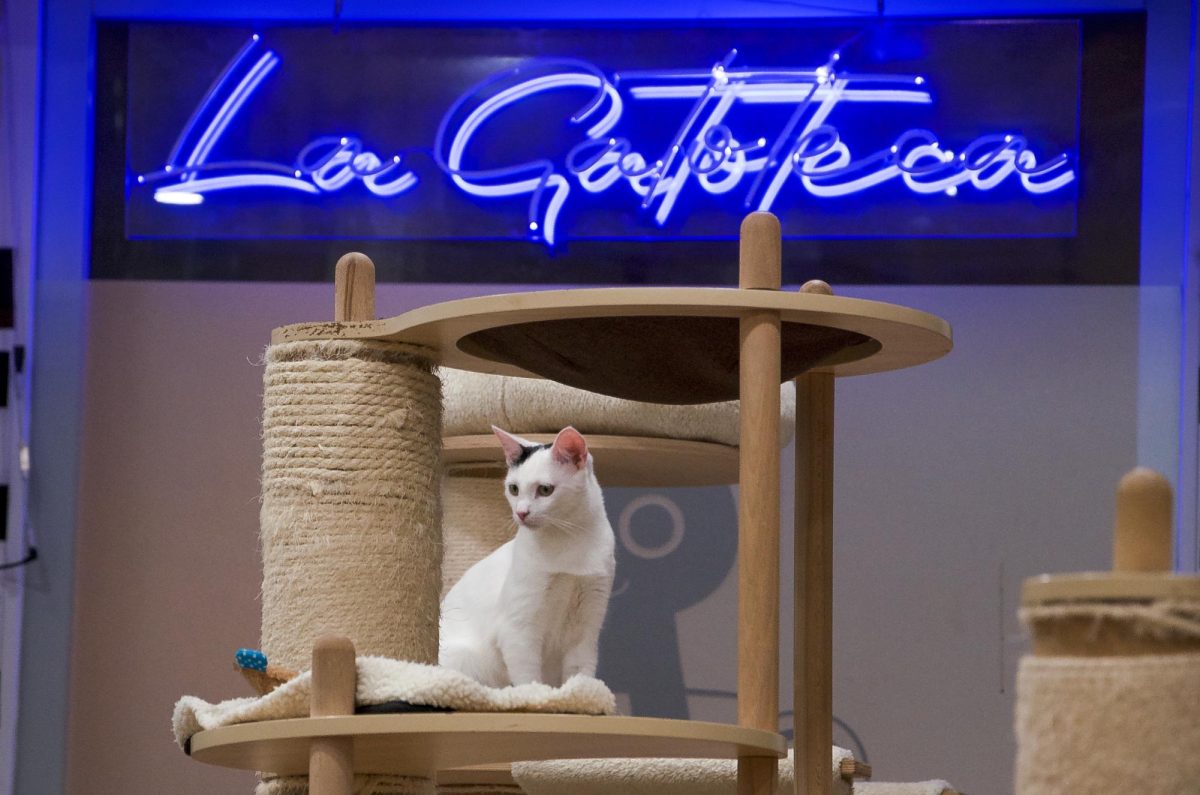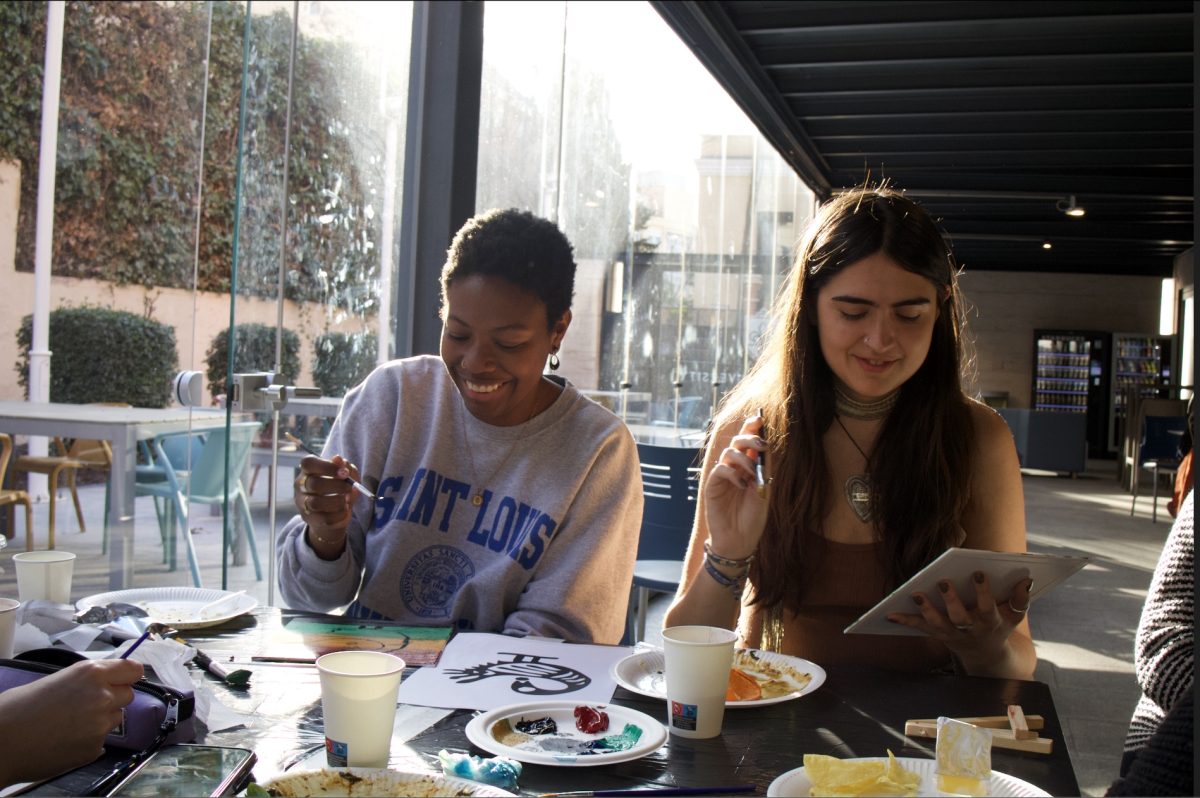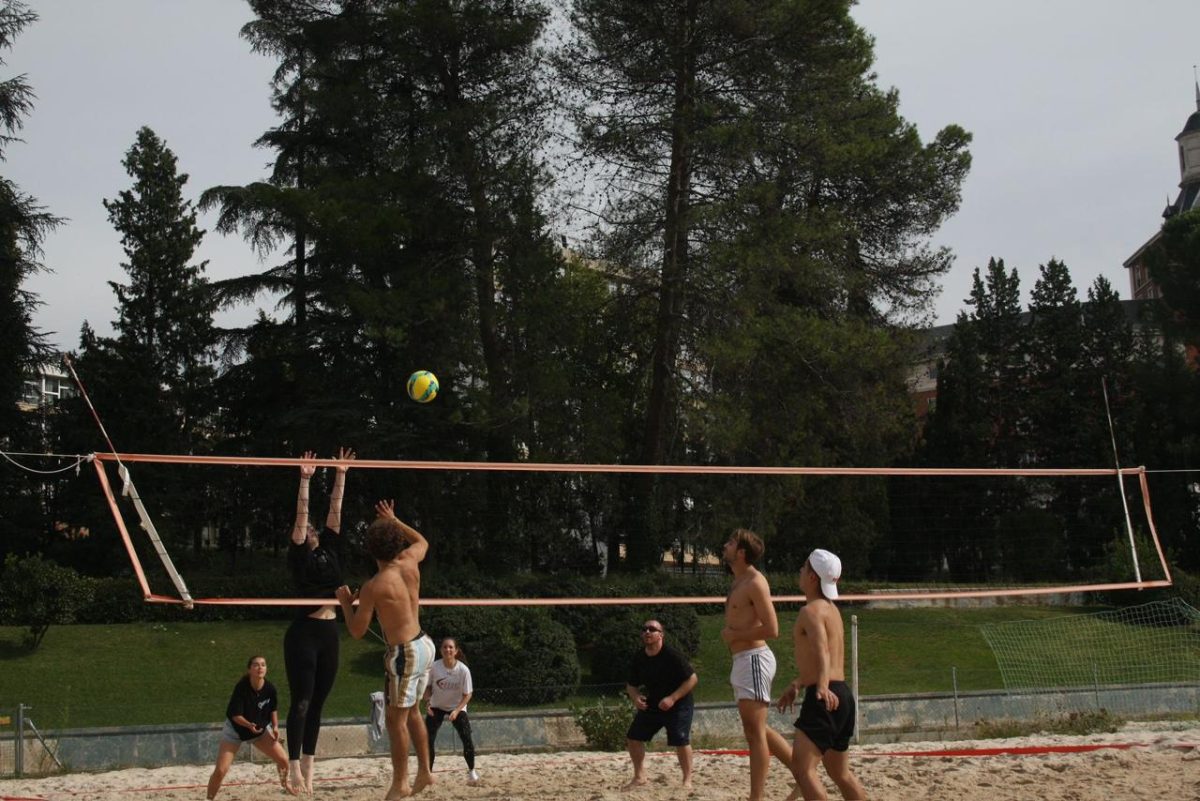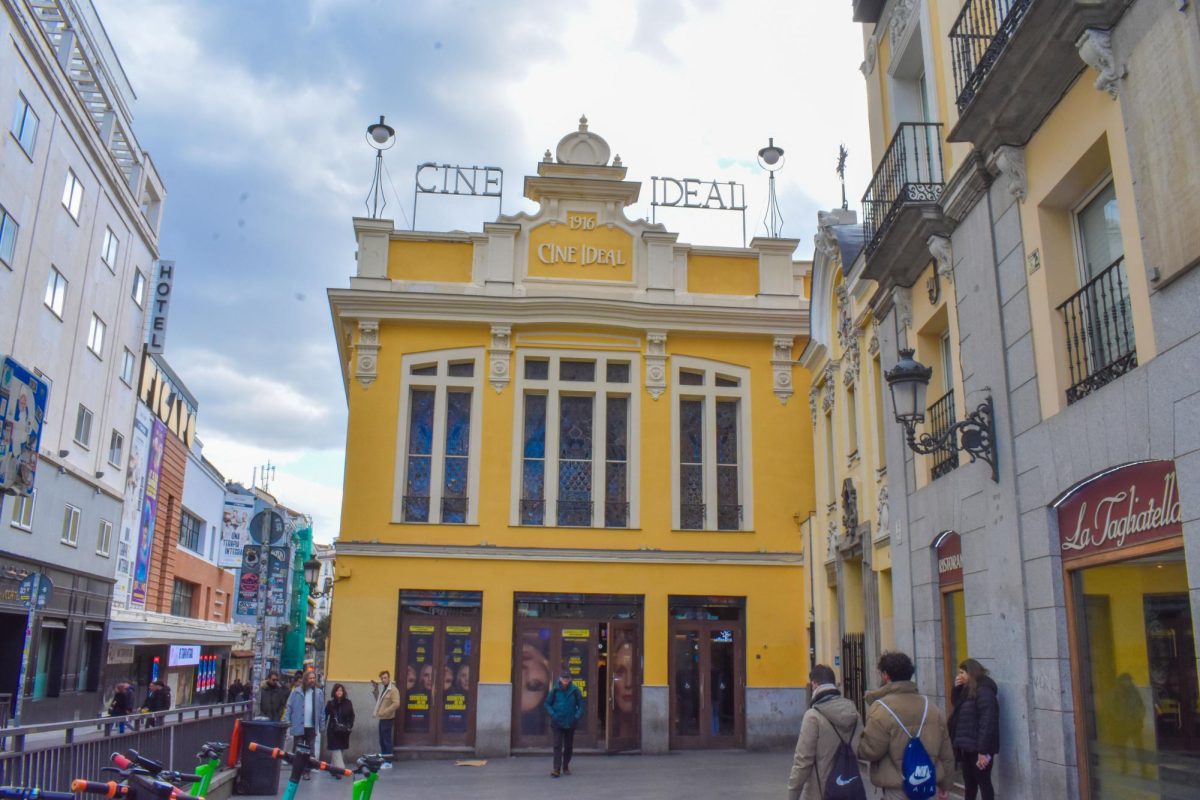Two short holidays were approaching, and Luna Fiandaca’s English professor informed her first-year students about fun ways to spend their days off in Madrid. She recommended movie theaters like Cine Yelmo Ideal and Cinesa Príncipe Pío, which show films in their original language with Spanish subtitles, known in Spanish as V.O.S.E. – that is, Versión Original Subtítulos en Español.
Fiandaca, 20, took her professor’s recommendation. A fan of Marvel movies, Fiandaca looked for English showings in Madrid until she hit the jackpot: a screening for Marvel’s Ant-Man Quantumania.
“Going to see Marvel movies is a big family event, and I was disappointed that I would miss out on seeing these movies in theaters because I would be in Madrid,” Fiandaca said. “But I was able to drag one of my friends along to go see Quantumania in February.”
English-speaking students often expect to find a language barrier to enjoying the arts in Madrid, and they are surprised at the prevalence of American media.
A quick search on Google Maps shows that there are around 15 cinemas in Madrid that offer V.O.S.E showings, including the Cine Yelmo and Cine Renoir chains. The Barbie movie, for example, was playing in English at 10 different theaters around Madrid last fall semester. American movie franchises like Marvel gain large international audiences.
Since moving abroad, Madilyn Von Luft, 21, has noticed how U.S. dominates global media.
“Very rarely do I see ads for a Spanish-produced film in theaters, it is almost always those blockbuster Hollywood movies,” Von Luft said. “It is not necessarily a bad thing because it is obvious that these are movies that Spaniards also want to see.”
In search of more Spanish films, Von Luft found Sala Equis, tucked away on a street near Tirso de Molina. The small marquis is only visible to those who know it is there. Patrons are greeted by a large bar and an open space with a spattering of chairs. There is a projector playing clips of old black-and-white movies and the occasional music video.
After you buy tickets, you go up a staircase into a small room packed with five rows of benches. “You are packed in and the screen is super close to you,” Von Luft said. “It is a fun way to watch movies because it feels more intimate. It almost feels like you are watching a movie at home, but it’s not, it is a completely different experience.”
When watching the dubbed version of a movie, between pieces of popcorn and sips of soda, a viewer will notice that the words and actions conveyed by the actor are lost in the dubbing.
This is one of the reasons Lau Dodd, 21, prefers watching movies in their original language. “I do see a lot of Spanish media and films,” Dodd said. “However, if I am going to see big English productions like Wonka, Hunger Games, or Barbie, I want to see it in the original language with subtitles because I feel like there are a lot of nuances that can get lost in translation.”
Adrian Hebrero, a student at U-tad, the University Center for Technology and Digital Art in Madrid, believes that younger Spaniards prefer seeing V.O.S.E. films.“Due to recent internet culture, we are surrounded by English and American culture,” Hebrero, 22, said. “I think maybe 15 years ago, most people would have rather watched dubbed movies. But as of now, Gen Z and millennials are so used to English that we would rather watch the original version.”
U.S. film marketing also helps.
Spanish linguistics professor Cristina Matute’s daughter loves to dress up as her favorite Disney princess and sing songs from the movies.
“Before Disney’s Wish was released, my daughter saw toys and books from the movie in the jugueterías,” Matute said. “The Hollywood production companies use merchandise to make additional profit. In Europe that doesn’t happen. It is just the film, there’s no promotion. That’s a cultural thing, not only an economic issue because films are culture and American culture is very present in Europe,” she added.
According to communication professor Rosana Vivar, American film dominates the industry because they have mastered the creation of a universal story.
“I think the transition to democracy was the key moment for Spain to start embracing American storytelling and American production values, like the world of celebrities for instance,” said Vivar, whose research focuses on film exhibitions and subcultural film audiences.
In Franco’s Spain, dubbing was used to control the narrative that was being portrayed on screen, she added.
“I remember watching the movie Cabaret for the first time in Spanish and the ending was completely different because they dubbed over the actors,” Vivar recalled. “By the end of the movie, you never understand that he had a homosexual relationship, which was nonexistent in the Spanish dubbed version.”
Vivar herself prefers original language films. “I am interested in that intercultural experience of watching a movie that is in a different language and is made by someone who doesn’t share a culture with me,” she said. “I find it more exciting.”
“I think I’m prejudiced when it comes to Spanish movies sometimes because it feels like many Spanish filmmakers have to tick off certain boxes,” Vivar added. “If they don’t tick that box it’s not going to be part of film history or get any awards. The canon of Spanish films are themes about political and social realities. In terms of themes, I find Spanish media very homogeneous. I tend to embrace movies from other cultures because it is a more inviting and enjoyable experience.”

